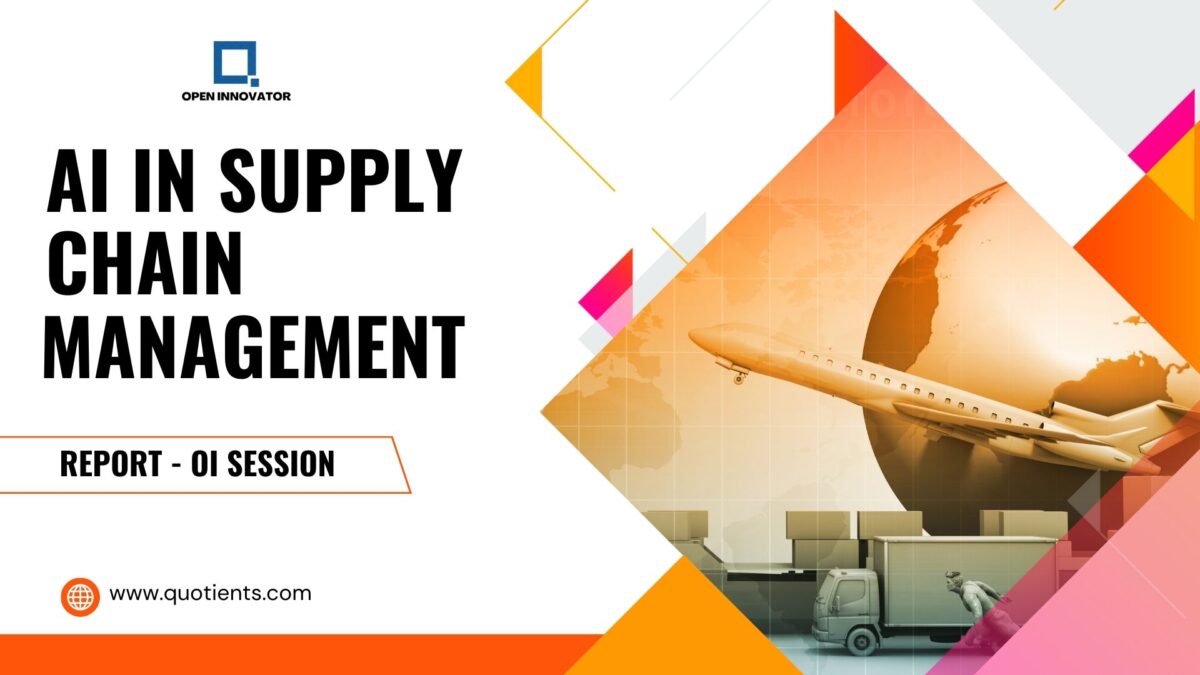The OI session on “AI in Supply Chain and Logistics” featured industry experts discussing the transformative role of artificial intelligence (AI) across various sectors of the supply chain, including pharmaceuticals, steel, and packaging. The session highlighted both the potential benefits and the challenges of integrating AI into existing systems.
The panelists that participated are Bharat Bhushan Rathi, Head of Distribution and Logistics at Mankind Pharma, with over 17 years of experience in various logistics and management roles. Dr. Ghanshyam Singh, Head of Purchase & Supply Chain Management, with expertise in B2B and B2C, and previous roles at Walmart, Rich’s, Savencia, and Chaipoint, holding a PhD in Strategy, MBA, and LLB. Sameer Gupta, Deputy General Manager – Supply Chain (LSS-Black Belt) at JK Tyres & Industries Ltd. S.K. Ranka, Head of Procurement at Maharashtra Seamless Ltd, with extensive experience in procurement and supply chain management.
Key Insights
1. Pharmaceutical Industry
- AI Use: AI is being used to help with demand planning by forecasting production requirements and illnesses.
- Human Touch: Because of the industry’s intricacy, human intervention was necessary despite AI’s potential. According to pharmaceutical specialist “the current supply chain is a well-designed human chain,” highlighting the need for AI to support human decision-making rather than replace it.
- Industry Dynamics: Seasonality has a significant impact on India’s fragmented industry, making adaptability essential for success.
2. Steel Industry
- SK Ranka of Maharashtra Seamless Limited discussed how artificial intelligence (AI) helped collect historical data and forecast market trends, resulting in better-informed procurement strategies.
- Inventory management: Steel producers had to balance output for local markets against exports due to low domestic demand. Despite being crucial, accurate demand forecasting was difficult because of erratic outside influences.
3. Packaging Industry
- The panelists emphasized how artificial intelligence (AI) facilitated improved decision-making by offering insights into global market circumstances, raw material costs, and refinery optimization.
- Negotiation Efficiency: With many negotiations occurring every day, the capacity to evaluate information prior to discussions greatly enhanced results.
4. Predictive Capabilities and Agility
- The role of AI: AI improved enterprises’ capacity to monitor sustainability efforts, make prompt choices, and streamline transportation systems.
- Sustainability Focus: AI is helping enterprises make the shift to more sustainable operations by lowering carbon footprints and managing energy utilization.
5. Challenges and Innovations
- Implementation Barriers: Using AI to its full potential is difficult due to supply chain complexity. It is believed that startups were essential in providing creative answers to these problems.
- Real-Time Solutions: Businesses like Syook showed how AI-powered solutions greatly improved asset management and logistics operational visibility and efficiency.
6. Digital Transformation
- Enterprise Solutions: A number of companies implemented AI and big data strategies to optimize production planning, inventory control, and procurement procedures, leading to significant cost and efficiency savings.
The conversation acknowledged the ongoing need for human expertise while highlighting the critical role AI plays in improving supply chain management. To overcome current obstacles and take advantage of the benefits AI offered, cooperation and creativity were crucial. In order to prepare supply chain management for a bright future, the session ended with a request for continued participation and investigation of new technologies in subsequent meetings.






